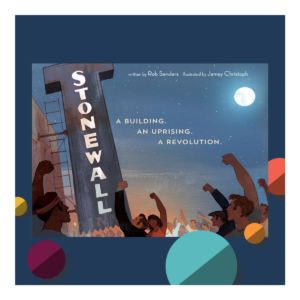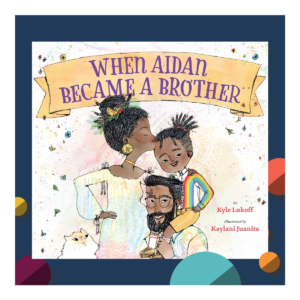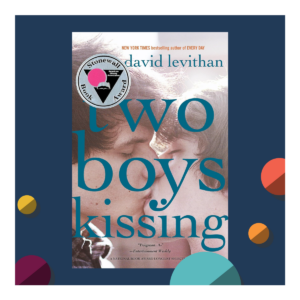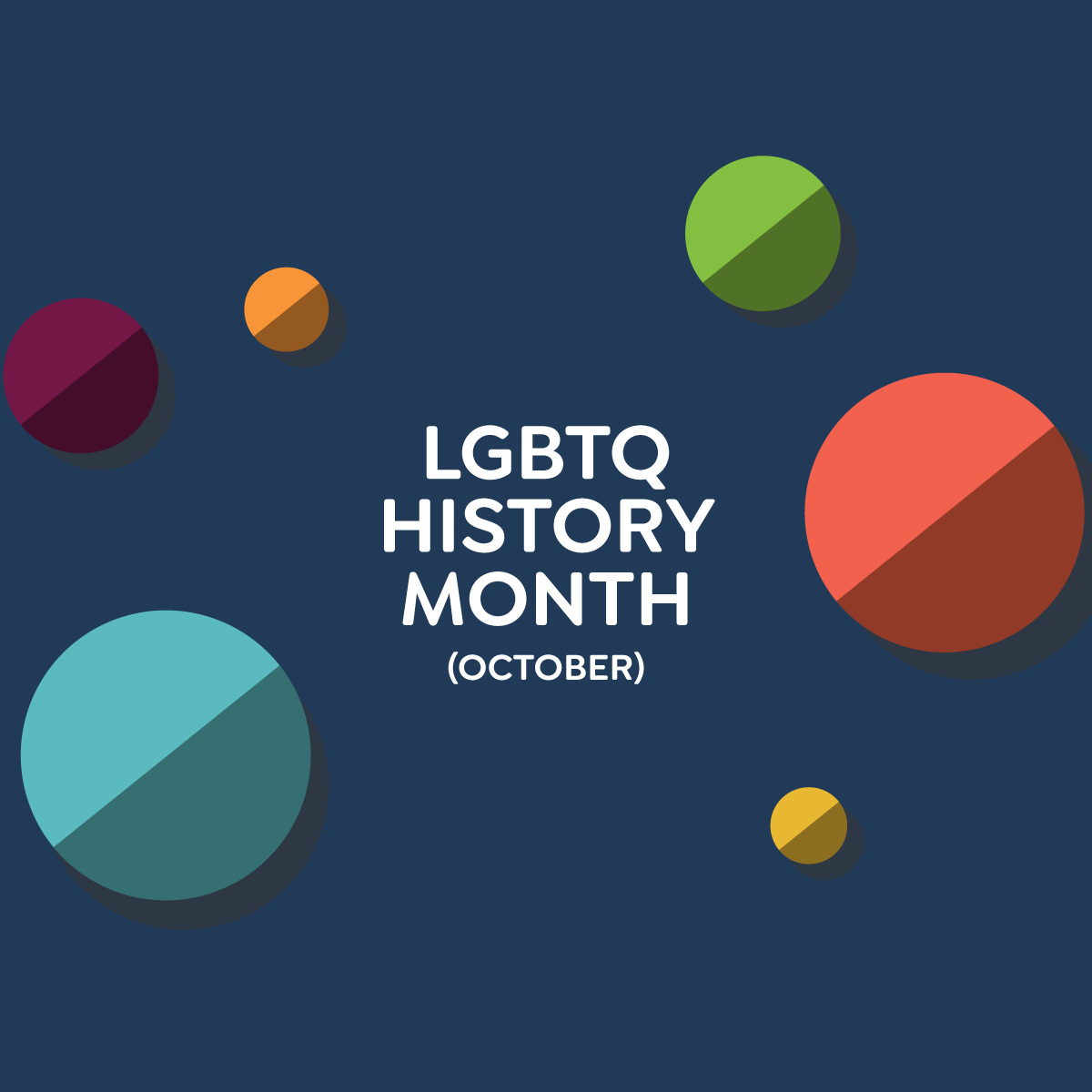We can only truly understand the present when we understand our past. These books, honoring LGBTQ+ history month, some of which our youngest readers will not yet be ready for, offer unique opportunities to engage students in meaningful discussions and projects. Use them to foster inclusion, empathy, and understanding in the classroom as we look to the future alongside our students!
 Stonewall: A Building. An Uprising. A Revolution. by Rob Sanders, illustrations by Jamey Christoph
Stonewall: A Building. An Uprising. A Revolution. by Rob Sanders, illustrations by Jamey Christoph
This book vividly recounts the Stonewall Riots of 1969, a pivotal event in LGBTQ+ history that marked the beginning of the modern LGBTQ+ rights movement. It highlights the bravery of those who fought for their rights at the Stonewall Inn in New York City while providing a historical context for the LGBTQ+ rights movement.
Ideas for Your Learners: Use this book to explore the impact of the Stonewall Riots. Have students work collaboratively to research and present significant LGBTQ+ events through an annotated timeline.
Melissa by Alex Gino
This novel (previously titled George) tells the story of Melissa, a young transgender girl who faces challenges at school and at home but finds strength and support through her true identity. She feels that she must share her true self with the world when she has the opportunity to play the role of Charlotte in a school play. Gino brings out themes of acceptance and self-discovery in this realistic story. It offers an insightful portrayal of the experiences of transgender youth, fostering empathy and understanding among students.
Ideas for Your Learners: Discuss the importance of using correct names and pronouns. Students can write letters to George offering support and understanding, which can be shared in a class discussion.
 When Aiden Became a Brother by Kyle Lukoff, illustrations by Kaylani Juanita
When Aiden Became a Brother by Kyle Lukoff, illustrations by Kaylani Juanita
This book tells the story of Aiden, a transgender boy, as he prepares to welcome a new sibling into his family. When Aiden Became a Brother explores themes of family, identity, and acceptance. It highlights the experiences of transgender children and the importance of family support.
Ideas for Your Learners: Use Aiden’s story as a jumping-off point for discussions about inclusion, respect, and support. Encourage students to create family trees that reflect their own families and discuss how different family structures and experiences shape our identities. If students are uncomfortable making their own family tree, they can select a historical figure, a fictional character, or anyone else whose heritage and experience they can track.
 Two Boys Kissing by David Levithan
Two Boys Kissing by David Levithan
This novel, written in a unique narrative style, follows the lives of two teenage boys as they participate in a record-breaking kissing event while exploring themes of love, identity, and community. It reflects on LGBTQ+ history and contemporary issues and uses a narrative structure to outline how the evolution of queer rights. Two Boys Kissing addresses important themes in a way best suited for slightly older readers.
Ideas for Your Learners: Host a discussion on how LGBTQ+ rights have evolved over time. Students can research and present on different LGBTQ+ milestones and how they’ve impacted society, and what they believe the future holds.
Incorporating these books into your classroom will not only celebrate LGBTQ+ history but also help students build a more inclusive and empathetic understanding of diverse identities and experiences. Use these and other stories, like this list of recommendations for Celebrating Pride Month, to begin and support discussions, inspire creativity and action, and lead to students’ understanding of themselves and others.
You can continue honoring the contributions of all people by bringing Youth Empowered Stewardship (YES) to your school. YES is an innovative, experiential process that builds authentic partnerships between students and adults to create vibrant, sustainable communities. Through music, movement, and visual arts, facilitators foster multi-generational collaboration to address complex challenges and drive continuous, asset-based improvement. YES echoes the spirit of these books by uplifting youth voices and building equity through creativity, collaboration, and connection.



